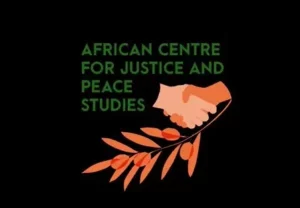The African Centre for Justice and Peace Studies (ACJPS) organised a meeting with Sudanese civil society organisations and human rights defenders to address enforced disappearances in Sudan. The centre said it documented 118 enforced disappearance in Sudan, bringing the number of identified cases up to 1100 since conflict erupted in April 2023.
The meeting, held on October 26 at the Royal Suites Hotel in the Ugandan capital, Kampala, aimed to unify efforts and expand documentation on the issue of enforced disappearances. ACJPS documented 118 cases involving 102 men and 10 women who were forcibly disappeared in Sudan, bringing the total number of cases up to 1100.
Mosaad Mohamed, executive director of the ACJPS, described enforced disappearances in Sudan as a systematic and escalating problem, frequently attributed to sovereign bodies, “including the Rapid Support Forces (RSF), Military Intelligence, security forces, and militias linked to the former regime”. He characterised enforced disappearance as a complex crime, often beginning with arbitrary detention and extending to torture or extrajudicial killing.
Mohamed observed that Sudanese authorities increasingly target human rights defenders, political activists, and members of resistance committees, even in remote areas. He suggested that “the high numbers of bodies accumulating in morgues”, even before the April conflict, may indicate that some missing persons have been killed.
An ACJPS researcher, who spoke to Radio Dabanga on the condition of anonymity, said that cultural and societal pressures often deter families from reporting disappearances involving women. “Enforced disappearances affecting women frequently involve other violations, such as harassment or rape, which discourages families from speaking out due to the stigma attached.” In turn, the researcher explained, this limits ACJPS’s capacity to monitor and document these incidents accurately.
The documented cases range widely in age, with most involving young people. “Most of the disappeared are in locations known to some of their families, while others are hidden in unknown locations, which complicates our documentation efforts,” the researcher noted.
Documentation
Documentation efforts face significant obstacles, including Sudan’s unreliable internet and families’ concerns about potential reprisals. Many worry that revealing information about the detainees could expose them to torture or extrajudicial killing.
The ACJPS researcher told Radio Dabanga that obtaining consent from victims’ families often poses a challenge in bringing cases to international bodies -such as the United Nations Committee on Enforced Disappearances- and some families “refuse to be referred despite having complete data”. She cited four cases that stalled because families did not want to pursue international procedures, even though all necessary documentation was in place.
During the event, ACJPS disclosed that it had submitted two cases to the African Committee on the Rights of the Child and seven to the UN Committee on Enforced Disappearances in Geneva. This aims to pressure authorities to release the victims and uphold their rights.
The centre said that reporting cases to the UN Committee on Enforced Disappearances led to the release of one person, after Sudanese authorities intervened. But despite this success, the government has not responded to the remaining cases.
Looking ahead, the ACJPS plans to document mass graves, cases of disappeared children and people with disabilities, and other vulnerable groups, as part of its continuing efforts to expand evidence of rights abuses in Sudan, the executive director told attendees.
The post ACJPS: Enforced disappearances in Sudan ‘systematic and escalating’ appeared first on Dabanga Radio TV Online.
Source: dabangasudan










